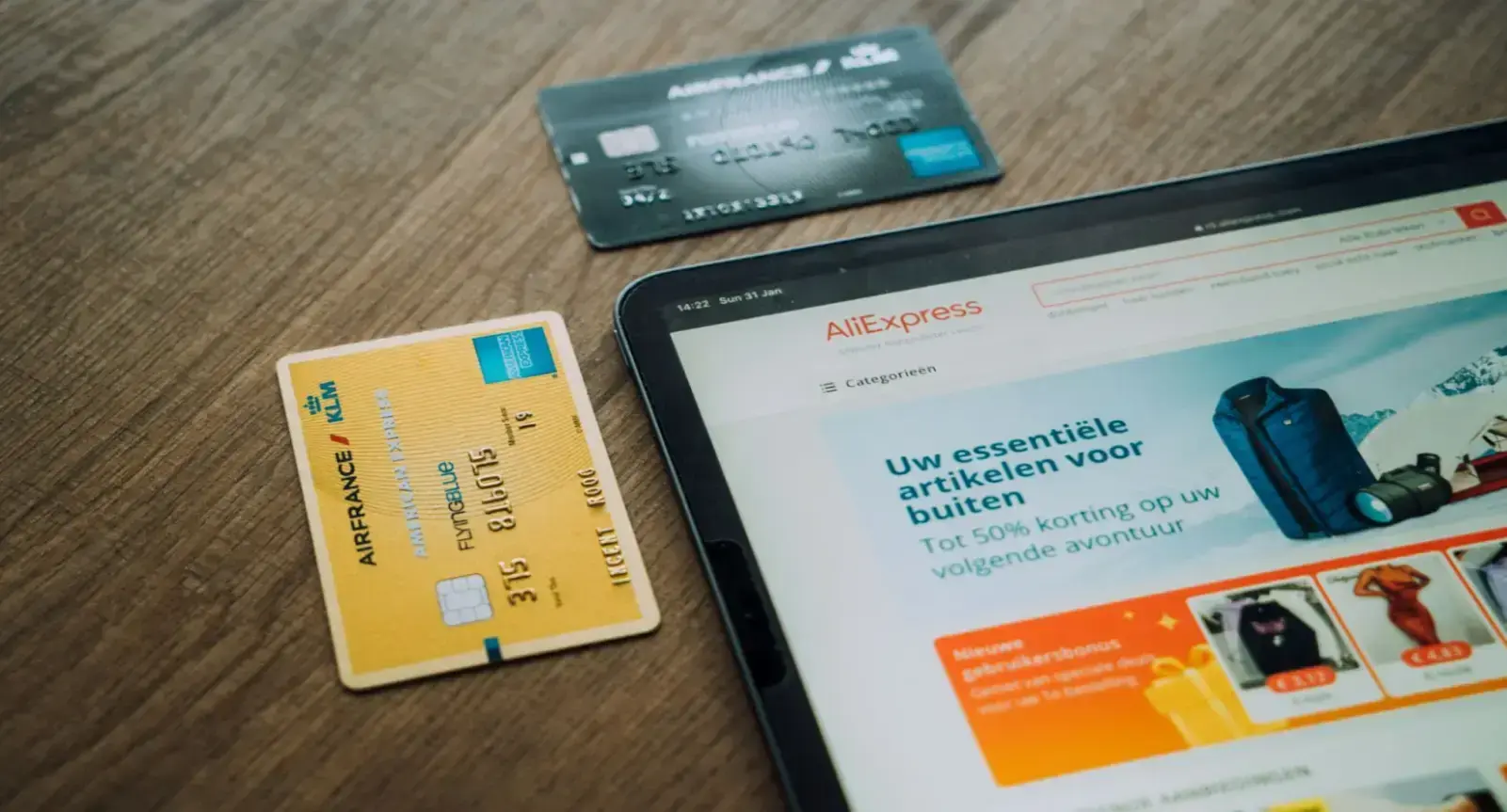Navigating international transactions can be complex, especially when dealing with diverse currencies and global markets.
Payment gateways are crucial for ensuring seamless, secure cross-border transactions for businesses of all sizes.
Whether you're a growing e-commerce store or a multinational enterprise, understanding how these gateways function is vital to optimizing your payment processes.
This payment gateways guide will walk you through the essentials, helping you choose the right solution to support your international business needs.
In this article:
- What are Payment Gateways?
- Why Global Payment Gateways are Crucial for International Transactions
- Choosing the Right Payment Gateway for Your Business
- Top Payment Gateways for International Transactions
- Frequently Asked Questions

Source: Pixabay
What are Payment Gateways?
Payment gateways are crucial components of online transactions.
They facilitate the transfer of funds between buyers and sellers, encrypting sensitive information to ensure secure transactions.
How payment gateways work
Online payment systems act as intermediaries during web-based transactions, securely shifting funds from the consumer's bank account to the business's payment portal.
The protected data is then transferred to the business's bank and the payment processing service. This service verifies the availability of the required funds with the consumer's bank.
If the funds are adequate, the transaction is approved, and a confirmation is sent back along the transaction route. The consumer’s funds are moved into the business’s account, typically within several days.

Source: Unsplash
Types of payment gateways
Payment gateways are key to processing web-based transactions in global e-commerce. These systems serve as conduits between companies, consumers, and financial institutions, facilitating secure, efficient fund transfers.
- Hosted Payment Gateways guide your client to the transaction service provider's platform at the point of payment. This ensures that organizations don't handle sensitive financial data directly, adding an extra layer of security while enabling effective transaction monitoring to detect suspicious activities in real time.
- Self-hosted Payment Gateways enable organizations to collect transaction details on their websites before relaying them to the payment gateway for processing.
- API-hosted Gateways provide companies with the resources to integrate checkout systems directly into their applications or websites. This requires compliance with strict security protocols.
- Local Bank Integration routes clients to the bank's site to conduct transactions. After completion, clients are redirected to the merchant’s website.
- Direct Post Method balances hosted and self-hosted gateways by posting data straight from the checkout form to a secure gateway while still being hosted on the merchant’s server.
Each payment gateway has distinct benefits and considerations, including differences in security prerequisites, user experience, and integration complexity.
Organizations must select thoughtfully based on their specific needs for global payment processing, compliance, and the desired customer experience.
Why Global Payment Gateways are Crucial for International Transactions

Source: Unsplash
Global payment gateways are vital for international transactions because they support multiple currencies and enable broad geographic coverage.
Their focus on compliance and security ensures smooth and secure online transactions for businesses operating globally.
Currency and geographic coverage
For businesses functioning globally, a payment gateway with extensive currency and geographic reach is essential. This allows processing payments in several currencies and catering to an international clientele.
An expansive payment gateway broadens your market reach, enabling you to access customers beyond your region. It simplifies transactions by eliminating concerns about currency conversions and supports simplifying customer purchases.
Compliance and security
When selecting global payment gateways for international transactions, businesses must prioritize compliance with legal and security standards.
Global payment gateways employ advanced encryption protocols and fraud prevention measures to ensure strong security and confidence in cross-border transactions.
Collaborating with payment processors that offer strong compliance features assists businesses in navigating intricate regulatory requirements while safeguarding sensitive financial information from potential cybersecurity threats.
Choosing the Right Payment Gateway for Your Business

Source: Pixabay
When choosing the perfect payment gateway for your business, consider integration, ease of use, supported payment methods, and transaction fees to ensure smooth, cost-efficient operations.
Integration and ease of use
Businesses seeking global payment solutions should select gateways that integrate smoothly with their existing systems and offer user-friendly interfaces.
Ease of navigation improves usability, allowing businesses to manage cross-border payments efficiently.
Smooth integration and compliance with global banking standards are crucial for international eCommerce operations.
Supported payment methods and transaction fees
Selecting the right gateway requires understanding the various payment methods they support and their transaction fees.
| Payment Gateway | Supported Payment Methods | Transaction Fees |
|---|---|---|
| Papaya Global | Credit Cards, Direct Debit, Bank Transfers | Varies by country and transaction volume |
| Stripe | Credit Cards, Debit Cards, ACH, Apple Pay, Google Pay | 2.9% + 30¢ per successful card charge |
| Adyen | Credit Cards, Debit Cards, Bank Transfers, Local Payment Methods | Interchange fees + processing fees (varies) |
Consider these factors closely to ensure your business can process international payments efficiently and cost-effectively.
Top Payment Gateways for International Transactions
Papaya Global, Stripe, and Adyen are the top global payment gateways for smooth international transactions.
They provide secure online payment processing and multilingual support to help businesses efficiently conduct cross-border payments.
Papaya Global
Papaya Global is a comprehensive global payroll and payment management platform for businesses operating across borders. It offers multi-currency support and is ideal for international transactions and eCommerce payments.
With secure integration and fast transactions, Papaya Global simplifies global financial operations.
Stripe
Stripe is a widely used global payment gateway supporting multicurrency transactions and seamless online payments for international businesses.
Stripe ensures compliance with international payment standards and provides robust integration capabilities and intuitive user interfaces.
Adyen
Before selecting a global payment gateway, consider Adyen — recognized for supporting multiple currencies and enabling smooth cross-border payments.
With over 200 payment methods, including digital wallets and local options, Adyen allows businesses to accept international payments effortlessly.
In 2020, Adyen processed $303 billion in transactions, serving brands such as Uber, Spotify, and Microsoft.
Frequently Asked Questions
1. How can I protect my customers' sensitive information?
Choose a payment gateway with strong encryption, tokenization, and other security measures. Educate customers on best practices for online security.
2. Can I accept international payments with a payment gateway?
Yes. Many payment gateways support international transactions and allow payments in multiple currencies from customers worldwide.
3. How do I set up a payment gateway for my online store?
The process varies depending on your chosen gateway and e-commerce platform. Typically, you'll need to create an account, obtain API keys, and integrate the payment form into your checkout page.
4. How can I use a payment gateway for subscription-based services?
Many payment gateways support recurring billing, allowing you to charge customers for subscriptions automatically.
5. Can I use multiple payment gateways?
Yes. Many businesses use multiple payment gateways to offer more payment options and reduce their reliance on a single provider.
Final Thoughts

Source: Pixabay
Global payment gateways are crucial for supporting international transactions.
Choosing the right gateway ensures smooth integration and easy use, helping businesses expand their reach and serve international customers effectively.
When entering international eCommerce, consider top gateways like Papaya Global, Stripe, and Adyen.

About the Author
I'm Mick, and I run the growth team at POWR. We make no-code apps and plugins for e-commerce shop owners and small businesses globally. Last I checked, we have over 18 million POWR apps in the wild in every country on Earth 😎
My career spans two decades, primarily in growth marketing and advertising, with stints in broadcast television, healthcare marketing, and copy editing. I studied at the College of Journalism at the University of Louisiana - Monroe. My wife Elizabeth, son Gavin, and pup Jolene (yes, only Jolene gets in the picture 😄) call Lafayette, Louisiana, their home.


